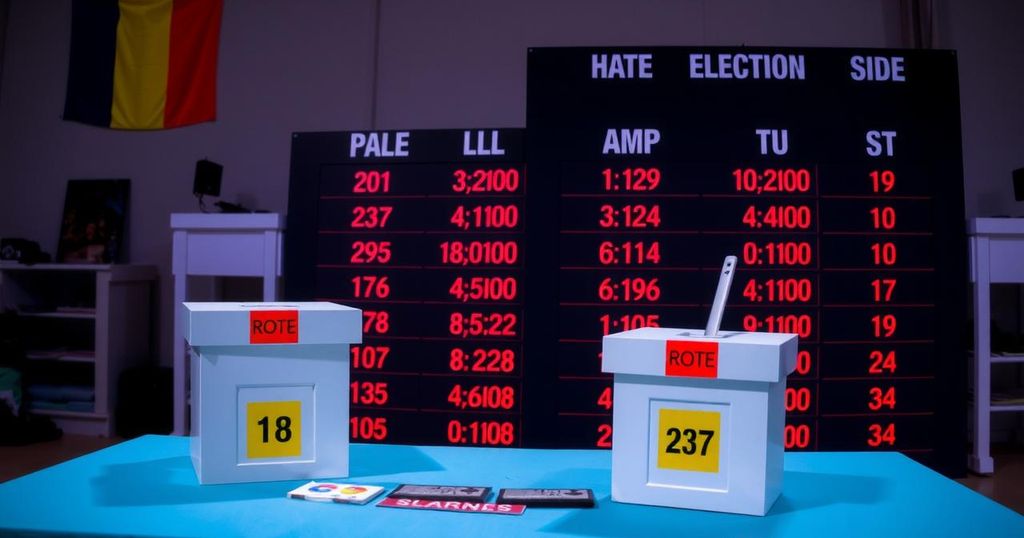Romania Cancels Election Results Amid Allegations of Russian Interference

Romania’s constitutional court canceled the first round of its presidential elections, citing foreign interference linked to Russia aimed at supporting pro-Russian candidate Calin Georgescu. Allegations suggest a coordinated disinformation campaign on TikTok by dormant accounts activated prior to the election. This action raises significant concerns regarding the integrity of Romania’s electoral system and its implications for national security.
Romania’s constitutional court has taken a historic step by annulling the results of the first round of its presidential election and postponing the second round. This unprecedented decision stems from claims made by the current government, alleging extensive foreign interference, particularly from Russia, which aimed to bolster the candidacy of Calin Georgescu, a candidate characterized as pro-Russian and anti-NATO. The influence operation reportedly utilized TikTok, with Romanian intelligence revealing a surge of activity from previously dormant accounts. Prominent voices, including Romanian officials and U.S. authorities, have called for accountability regarding this manipulation, which poses a significant threat to Romania’s political stability and aligns with broader concerns about Russian influence in Eastern Europe.
The recent developments in Romania occur against a backdrop of rising tensions in Eastern Europe, particularly due to Russia’s aggressive stance in the region. As a NATO member and EU nation, Romania’s political integrity is crucial for regional security. The allegations of foreign interference echo similar concerns voiced by other countries experiencing electoral meddling, reinforcing the need for vigilance against disinformation campaigns that exploit social media platforms.
In light of the annulment of the election results, Romania faces a pivotal moment that could reshape its political landscape. The accusations of foreign interference highlight the vulnerabilities within democratic processes, particularly regarding the manipulation of social media by state actors. As authorities work to address these issues, the implications of such actions extend beyond Romania, reflecting a broader challenge to democracy in a digitally interconnected world.
Original Source: www.pbs.org








